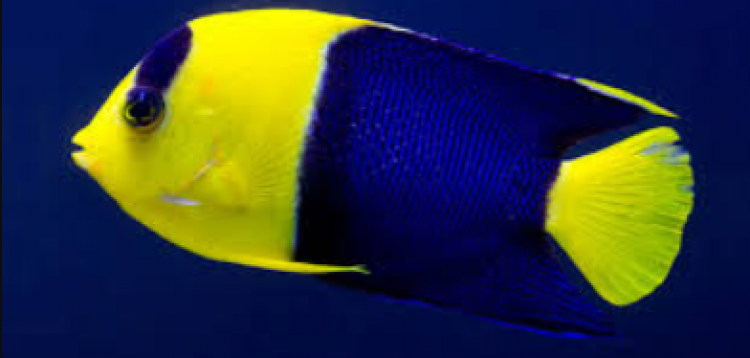- Name:
Maculosus Angelfish
(View AKA's) - Family: Pomacanthidae
- Species: Angel Large
- Scientific Name: Pomacanthus maculosus


General info about Maculosus Angelfish
Pomacanthus maculosus is a marine angelfish living mainly in coral and rocky areas, in shallow to moderate depths (~40 ft), or more often in silty reef areas than in rich coral growth. It occasionally makes its way into the aquarium trade. Juveniles of the Maculosus angelfish have a deep blue body coloring with narrow vertical whitish thin brs oalong their sides. As the fish grows, they lose their rounded dorsal and anal fins and becomes more pointed. Caudal fin of the adult Maculosus angelfish has a whitish to yellow with numerous fine yellow dots and the margin of the fin is white.
Maculosus Angelfish Diet & Nutrition
The Maculosus angelfish is an omnivore feeding mainly on sponges. The diet of this angelfish in the tank should include Spirulina, marine algae, meaty items, and high-quality angelfish preparations containing sponges.
Determining Sex of Maculosus Angelfish
No physical characteristic differentiates a male Maculosus angelfish from a female one.
Breeding & Spawning Maculosus Angelfish
The Maculosus Angelfish is hermaphroditic and external spawners. Females may change to males when the need arises. Spawning usually occurs at dusk to sunset, where the male and females release their gametes into the water column.
Common Diseases with Maculosus Angelfish
This angelfish is alsoprone to acquire diseases that are borne within the captive saltwater environment such as Saltwater Ich or White spot Disease and Marine Velvet Disease. They are also vulnerable to viral infections such as Lymphocystis which are small nodules on the fish fins and mouth. This angelfish is also prone to contract parasitic infections such as monogenetic flukes
Maculosus Angelfish Origin
These marine angelfish are mostly found in the Western Indian Ocean particularly in the Red Sea, Persian Gulf, and Gulf of Oman towards the Mediterranean.
Caution with Maculosus Angelfish
The Maculosus angelfish is generally a solitary, aggressive and territorial angelfish. They tend to go after angelfish with the same color but can be housed with aggressive and semi-aggresive tankmates. This angelfish tends to pick on live corals, clam mantles, and slow-moving or sessile inverts like the sea cucumbers. Other invertebrates that this angelfish may attack includes oysters, scallops and feather dusters.
Acclimating Maculosus Angelfish
Maculosus angelfishes should be kept in tanks with a capacity of 200-300 gallons for optimum life span and to avoid stress. It should have plenty of spaces for swimming and should be well decorated with rocks to move in and out of. When adding into the tank, this angelfish should be one of the last fish, if not the last fish, to be added to avoid harming other species in the tank. pH levels should be kept at 8.0-8.4 to avoid causing health problems to the angelfish.
Original Detail
| Name | Species | Family | Scientific Name | More Detail | Added by |
|---|---|---|---|---|---|
| Maculosus Angelfish | Angel Large | Pomacanthidae | Pomacanthus maculosus | Pomacanthus maculosus is a marine angelfish living mainly in coral and rocky areas, in shallow to moderate depths (~40 ft), or more often in silty reef areas than in rich coral growth. It occasionally makes its way into the aquarium trade. Juveniles of the Maculosus angelfish have a deep blue body coloring with narrow vertical whitish thin brs oalong their sides. As the fish grows, they lose their rounded dorsal and anal fins and becomes more pointed. Caudal fin of the adult Maculosus angelfish has a whitish to yellow with numerous fine yellow dots and the margin of the fin is white. |
PalaciosAn |
Changed by users
| Submitted Date | Submitted By | Status | Action |
|---|



